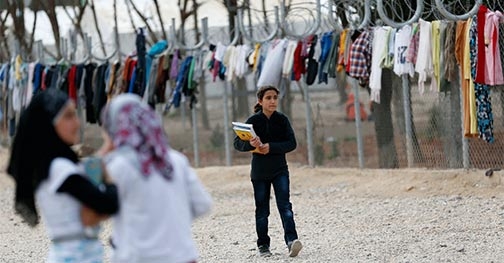A number of recent events have highlighted the importance of lifelong learning in the promotion of integration of refugees and migrants in Europe.
On October 21, the Lifelong Learning Foundation of Finland brought together stakeholders in the area of adult education in Europe. Dr. Katarina Popović, Secretary General of the International Council on Adult Education focused on the importance of sustainable development goals in the field of adult education and learning in working with refugees, and on the theme of immigration. The President of the European Association for the Education of Adults (EAEA), Paludan Hansen, addressed one of the key trends of 2015, in relation to the integration and lifelong learning of refugees and migrants. through strengthening adult education opportunities, life skills for individuals, active citizenship in democracy and better sustainability can be achieved.
On 15 October, speaking at a conference on 'Refugees' labour market integration: challenges and initiatives to maximise potential', organised by the European Economic and Social Committee (EESC),Peter O'Sullivan from United National Refugee Agency UNHCR highlighted further challenges in the area of labour market integration for refugees. "Barriers to the job market are quite numerous. Recognition of qualifications and language skills are the very first obstacles they are confronted with. Refugees say that they feel integrated when they have accommodation and a job - which is coherent with wider studies done on integration in the various Member States." The promotion of lifelong learning opportunities to refugees that will support the recognition and validation of soft skills was recommended. Presentations from the event can be found from the EESC website.
A September meeting of an Interest Group on Lifelong Learning, involving the EAEA and the Lifelong Learning Platform together with members of the European Parliament focused on the current refugee crisis, with the group looking at the role of citizenship education and lifelong learning in promoting a more inclusive European society. The Interest Group have called on Erasmus+ to be strengthened to better support civil society organisations to push together for a participatory governance of educational institutions and reinforce the capacity of educators to teach and assess social and civic competences.
Vice-Chair of the Interest Group, MEP Julie Ward (S&D, UK), stated that "We should aim at a long-term transformational strategy. We cannot support active citizenship and democratic adherence if educational institutions themselves do not become democratic and inclusive and if we do not implement more collaborative learning methods. The key challenge for civil society is to really contribute to changing mentalities and turning our educational institutions into community learning places."
These events signal a concerted effort to strengthen lifelong opportunities for refugees and migrants to support greater levels of integration.
